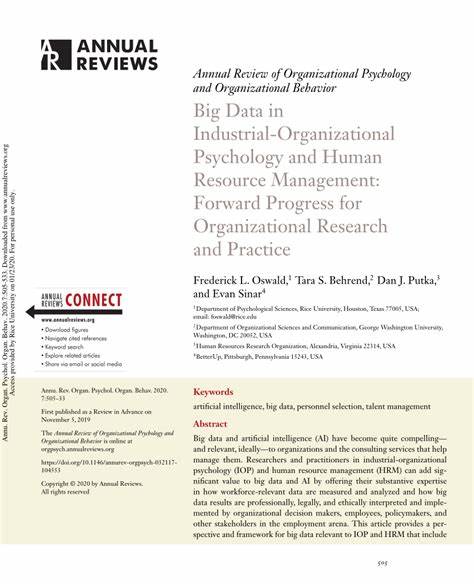远程办公如何改变工作世界
IF 31.1
1区 管理学
Q1 MANAGEMENT
Annual Review of Organizational Psychology and Organizational Behavior
Pub Date : 2023-12-06
DOI:10.1146/annurev-orgpsych-091922-015852
引用次数: 0
摘要
远程工作是指在离办公室有一定物理距离的地方完成的工作。现有的研究表明,这种特征的主要因素——物理距离和办公室——比大多数人意识到的要复杂得多。这篇综述发展了一个框架,将远程工作的概念折射为四种类型的距离——心理的、时间的、技术的和结构的,以及三种可以远离的对象——物质资源、社会资源和符号资源。然后,我们使用这个折射框架来回答关于远程工作改变未来工作方式的五个问题:(a)谁将远程工作?(b)人们将在哪里远程工作?(c)人们什么时候会远程工作?(d)为什么人们会远程工作?(e)人们将如何远程工作?在展示了现有研究如何帮助我们回答这些问题之后,我们讨论了未来调查的重要途径。《组织心理学和组织行为年度评论》第11卷的最终在线出版日期预计为2024年1月。修订后的估计数请参阅http://www.annualreviews.org/page/journal/pubdates。本文章由计算机程序翻译,如有差异,请以英文原文为准。
How Remote Work Changes the World of Work
Remote work is typically characterized as work that is done at some physical distance from the office. Existing research has shown that the main elements of this characterization—physical distance and the office—are far more complex than most people realize. This review develops a framework that refracts the concept of remote work into four types of distance—psychological, temporal, technological, and structural—and three objects from which one can be distant—material resources, social resources, and symbolic resources. We then use this refraction framework to answer five questions about the way remote work is changing the future of work: ( a) Who will work remotely? ( b) Where will people work remotely? ( c) When will people work remotely? ( d) Why will people work remotely? and ( e) How will people work remotely? After demonstrating how existing research can help us answer these questions, we discuss important avenues for future investigation.Expected final online publication date for the Annual Review of Organizational Psychology and Organizational Behavior, Volume 11 is January 2024. Please see http://www.annualreviews.org/page/journal/pubdates for revised estimates.
求助全文
通过发布文献求助,成功后即可免费获取论文全文。
去求助
来源期刊
CiteScore
24.20
自引率
2.20%
发文量
22
期刊介绍:
Launched in March 2014, the Annual Review of Organizational Psychology and Organizational Behavior is a publication dedicated to reviewing the literature on I/O Psychology and HRM/OB.
In the latest edition of the Journal Citation Report (JCR) in 2023, this journal achieved significant recognition. It ranked among the top 5 journals in two categories and boasted an impressive Impact Factor of 13.7.

 求助内容:
求助内容: 应助结果提醒方式:
应助结果提醒方式:


